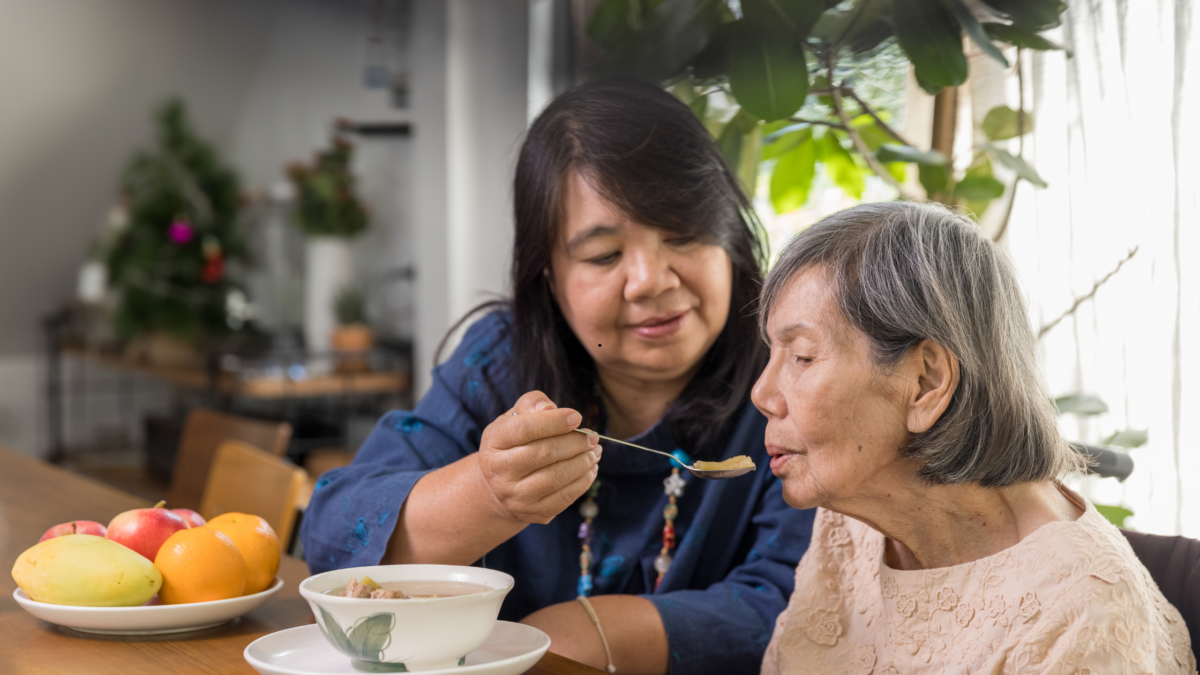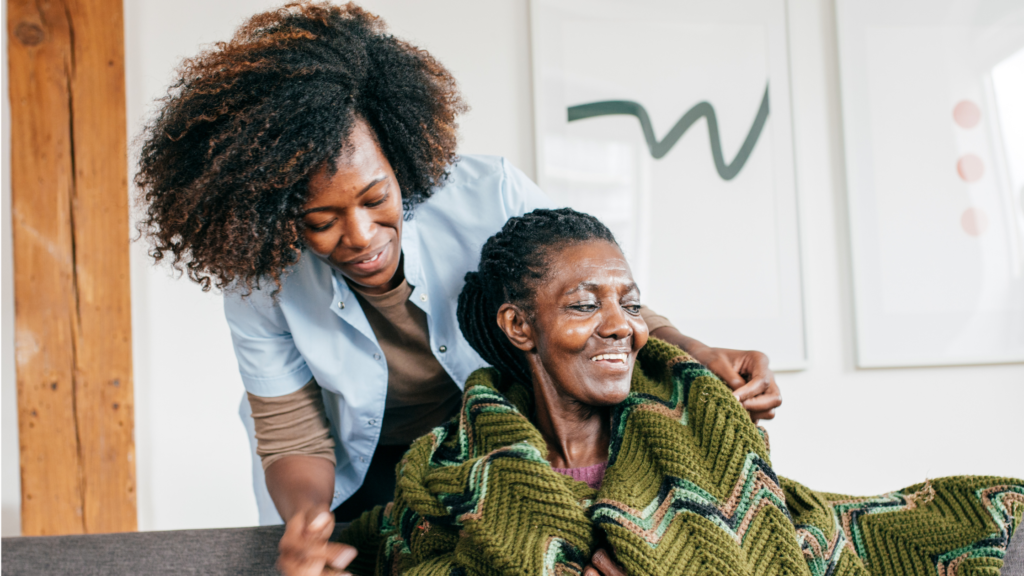
How to Prevent Caregiver Burnout When Caring for Aging Parents
If nurses experience extreme exhaustion with the overwhelming demands of caregiving, what more would it be for adult children of their aging parents. The double-edged sword on family caregivers is their emotional attachment with their aging parents causing both caregiver burnout and fulfillment of answering to the call of duty.
Without the right strategies and support, family caregivers may suffer long-term impact of caregiver burnout due to prolonged exposure to stress. While caregiving is a big responsibility, it’s still possible to make it more sustainable with the right tools and strategies.
Caregiver burnout symptoms

If you’re reading this, chances are, you’re already feeling some symptoms.
It’s important that before you go through all the dos and don’ts, dementia caregiver therapist Jenna Rumberger LCSW reminds caregivers to “recognize that you are a human first before you became a helper, a supporter and a family caregiver”. Give yourself that grace.
Recognizing the early signs of caregiver burnout can prevent it from escalating into more severe physical and emotional distress. Here are some common symptoms to watch out for:
- Exhaustion: Feeling physically and emotionally drained, even after rest.
- Irritability: Becoming easily frustrated or snapping at others.
- Withdrawal: Losing interest in activities you used to enjoy or feeling isolated from friends and family.
- Sleep Problems: Experiencing difficulty falling asleep or staying asleep due to stress and worry.
- Health Issues: Frequent headaches, stomach problems, or a weakened immune system due to chronic stress.
- Feelings of Hopelessness: Feeling trapped in your caregiving role, with little optimism about the future.
These signs are your body’s alert system telling you that you’re taking in too much stress more than it can handle. While it’s natural to feel that we don’t have a choice but to keep moving, remember that when your health declines things can get even worse.
Stages of caregiver burnout

Even the strongest person has limits too. Burnout builds up gradually, moving through different stages. Understanding these stages can help you recognize where you are in the process and when it’s time to seek help:
Stage #1: Enthusiasm and Optimism
At the start, you may feel a sense of noble cause and enthusiasm in your new role. However, as the caregiving responsibilities grow, stress can begin to creep in.
Stage #2: Stress and Fatigue
You’ll start feeling the weight of your duties. Sleepless nights, constant anxiety, and balancing caregiving with work leads to fatigue and irritability.
Stage #3: Exhaustion and Despair
In the final stage, caregivers feel completely overwhelmed and may experience a sense of hopelessness. Without intervention, this stage can lead to depression, anxiety, and even physical illness.
Being aware of these burnout stages will help caregivers like you to take proactive steps to help yourself towards a more empowered state.
How to Prevent Caregiver Burnout of Adult Children of Aging Parents

Caring for your aging parents can be a long-term commitment. It’s a phase where different emotions creep in. It’s a mixed bag of guilt, anger, love, pride, fulfillment, and self-pity. So, it’s crucial to establish sustainable habits that help manage stress and prevent burnout. Here are some strategies that might help:
Include rest and recreation as part of your routine

Incorporating breaks into your daily schedule is not a luxury but a necessity. Guilt often makes us think that rest is nonsense but it is the most productive thing you can do. When well-rested, you can take on more tasks than you could when you’re depleted.
Even short periods of rest can make a difference like an hour or two every day. Make sure to schedule time for activities that help you unwind, such as reading, going for a walk, or spending time with friends.
Remember, you can’t pour from an empty cup. Recharging your mind and body allows you to provide better care for your loved ones. Take rest like you’re charging your smartphone, even a small window of time makes a difference.
Join family caregiver communities

Isolation is a very common challenge for family caregivers. Most of them feel alone since everyone around them has a totally different life. Connecting with others who are in a similar situation can provide emotional support, compassion, and practical advice that your family can’t even give.
Joining online forums, local support groups, or social media communities focused on caregiving family members can be a great way to share experiences, feel validation, and feel less alone. The companionship of others who deeply understand your journey can be a crucial lifeline during difficult times.
Get help whenever you can

When we say help, most people think they’re big things where you pass on the whole responsibility to somebody. In reality, it could be a simple help carrying the groceries, checking in on your parents while you do some chores, or having someone give you some cooked meals so you don’t have to.
Reach out or allow other family members, friends, or neighbors who might be willing to assist, even if it’s the smallest task or the shortest time in a day. Accepting help doesn’t mean you’re failing—it means you’re taking care of your well-being so you can continue being there for your parents in the long run.
Consider hiring a caregiver

Cost has always been the number one reason why most family caregivers hesitate on hiring professionals. However, if you’re already burnt out and your body is already screaming for help with pain and illness, it’s more cost-effective to hire a professional than tons of medical bills coming your way.
Hiring a part-time or full-time caregiver allows you to balance work, self-care, and your caregiving responsibilities. There are different programs where you can hire by the hour or temporarily. Having professional help also ensures that your parents receive the specialized care they need, giving you peace of mind when you’re away.
Take one day at a time and let tomorrow’s trouble on its own

It’s easy to get overwhelmed when thinking about the future and all the challenges it may hold. It’s a rabbit hole and with an aging parent it comes with the anticipatory grief as well.
As hard as it may get but consider focusing on taking one day at a time because it has enough troubles on its own for caregivers like you. Break down your caregiving tasks into manageable steps and avoid thinking too far ahead. You’re doing your best for each day and that’s all that matters.
How long does it take to recover from caregiver burnout
Recovering from caregiver burnout is a gradual process that can be different for everyone. It has no timeline. It depends on factors like the level of stress, the duration of burnout, and the availability of support and resources.
Generally, recovery can take several weeks to a few months but it depends on how many proactive steps you take to recover well. Here are some ways that may help pull you up from the burnout pool:
- Prioritize rest and focus on healing.
- Seek support from a therapist who specializes in caregiver stress.
- Reintroduce enjoyable activities or bring back your old hobbies into your life.
- Reduce your caregiving hours, if possible, to focus on self-recovery.
Being patient with yourself and acknowledging your progress is key to overcoming burnout.
Let Essential Wellness help you prevent caregiver burnout
No one can truly guarantee the full recovery or prevention of caregiver burnout but you. As hard as it is to have a grip on self-care while caregiving, it’s the only thing that will help sustain the love you allotted for your aging parents.
Essential Wellness is a home health care agency in South Florida that aims to provide convenient healthcare support for caregiver families with aging parents, patients in recovery from injury, children with disabilities and patients with mental health conditions. Other services provided include:
- Personal Support (Daily living support)
- Life Skills (Companionship)
- Respite Care / Skilled Respite
- Analysis and Behavior Assistant services (ABA)
- Nursing
- Private Duty Nurse
- Skilled Nurse
- Residential Nurse
- Therapy
- Speech Therapy
- Occupational Therapy
- Physical Therapy
- Homemaker & Companion
- Specialized Mental Health
Check out your options with the free consultation to get personalized options for your situation. Caregiver burnout is hard to navigate and never ends up well if left unaddressed. May you find the systems and help that works for you because you’re as important as your aging parents too.

